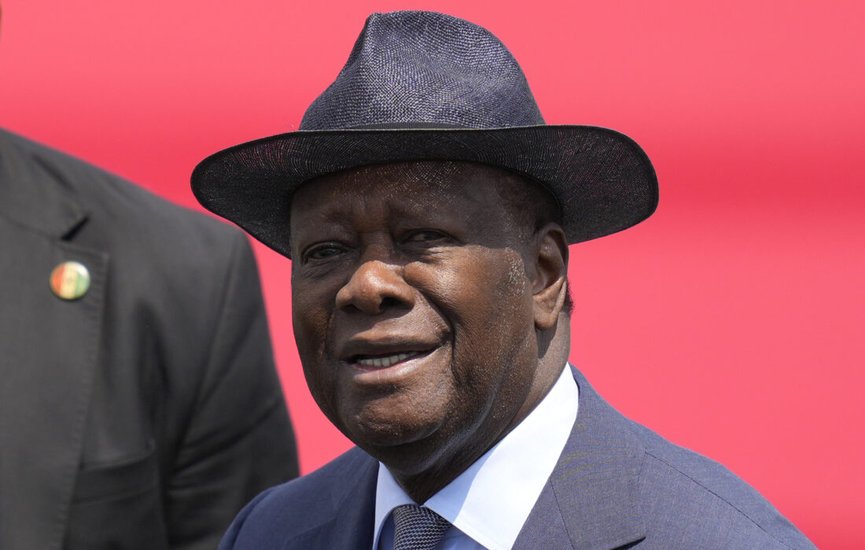Ivory Coast President Alassane Ouattara has revealed his intention to run for a fourth term, amid growing tensions over the exclusion of several prominent opposition candidates. His ruling Rally of Houphouetists for Democracy and Peace (RHDP) party had previously nominated him as their candidate, but he had not confirmed his decision to contest the October 25 election until now.
With the country’s top opposition figures deemed ineligible, Ouattara emerges as the clear frontrunner.
The 83-year-old president, who has been in power since 2011, confirmed his intention to run in a televised address on Tuesday.
“For several months, I have received numerous requests from citizens urging me to consider candidacy in the presidential election,” he stated.
Referring to the nation by its French name, he continued: “Women and youth from across Côte d'Ivoire, as well as many voices from our neighborhoods, towns, and villages, have reached out to me.”
In response to these appeals, Ouattara had announced on June 22 that, after careful reflection and with the nation's best interests in mind, he would make a decision.
Ouattara secured a third term in 2020 after constitutional amendments reset the presidential term limits. Although he initially declared he would not run again, his stance shifted after the death of his chosen successor, Prime Minister Amadou Gon Coulibaly. Opposition campaigners criticize Ouattara for consolidating his hold on power and vehemently oppose his bid for another term.
The opposition has accused the government of targeting their leaders through legal means, while the authorities maintain that the judiciary operates independently. The two main opposition parties have united in a joint campaign calling for the reinstatement of their barred leaders ahead of the presidential election.
This coalition includes the African People’s Party of Ivory Coast (PPA-CI), led by former president Laurent Gbagbo, and the Democratic Party of Ivory Coast (PDCI), the country’s largest opposition group, headed by former international banker Tidjane Thiam.
Gbagbo, his former ally Charles Ble Goude, and ex-Prime Minister Guillaume Soro have been removed from the electoral register due to criminal convictions.
Thiam, Ouattara’s main rival, was barred from running by a court ruling, which cited his French citizenship at the time he declared his candidacy, despite his later renouncement of it. Ivorian law prohibits dual nationals from running for president.
Past elections in Ivory Coast have been marked by tension and violence. When Ouattara announced his third-term candidacy, several people were killed in the unrest that followed. There have been protests over the court’s decision to bar Thiam from the race.
Ouattara is part of a growing trend of West African leaders who remain in power by altering constitutional term limits.
In the region, coup leaders have cited alleged corruption within democratic governments and electoral reforms as justification for seizing power, leading to divisions within the Economic Community of West African States (ECOWAS).
